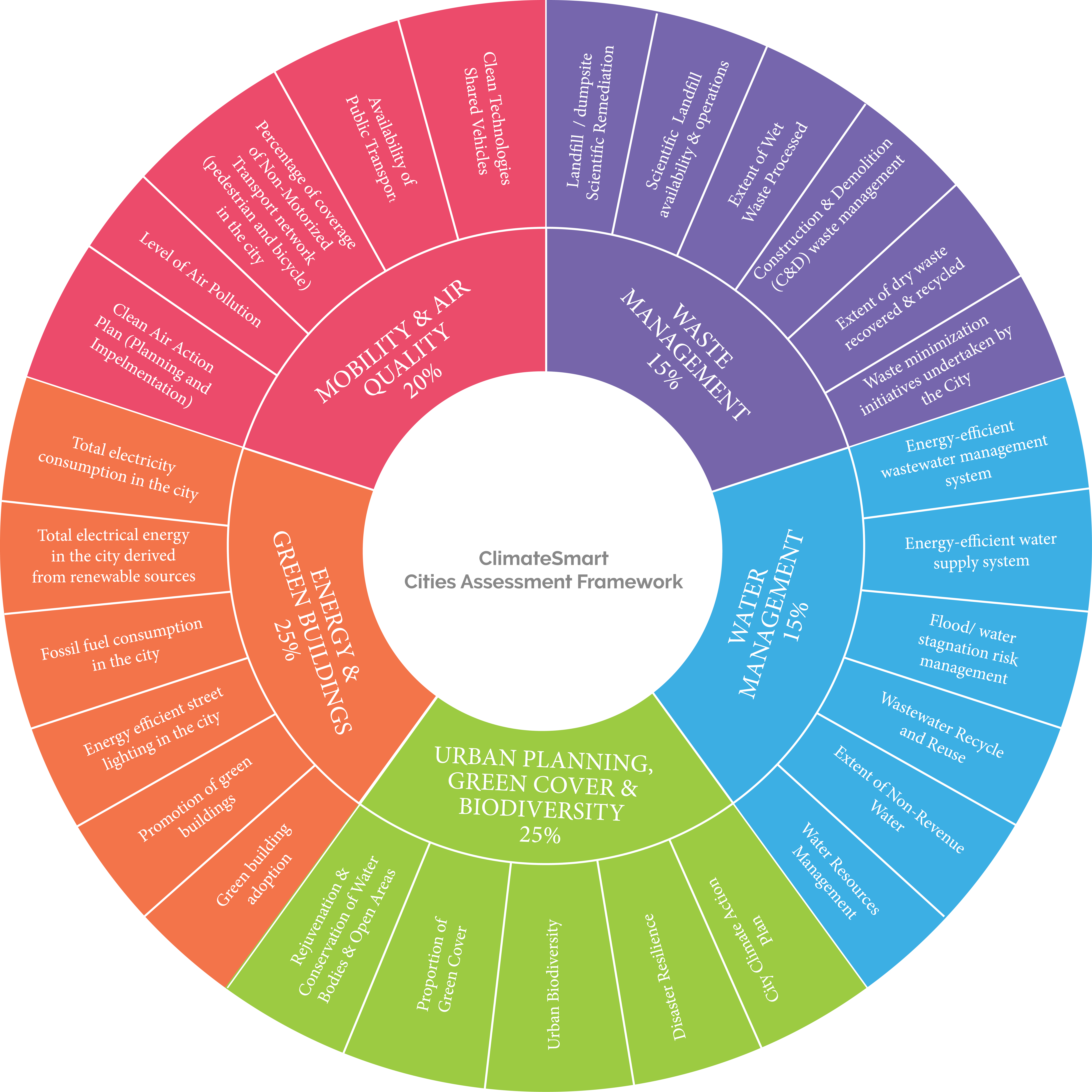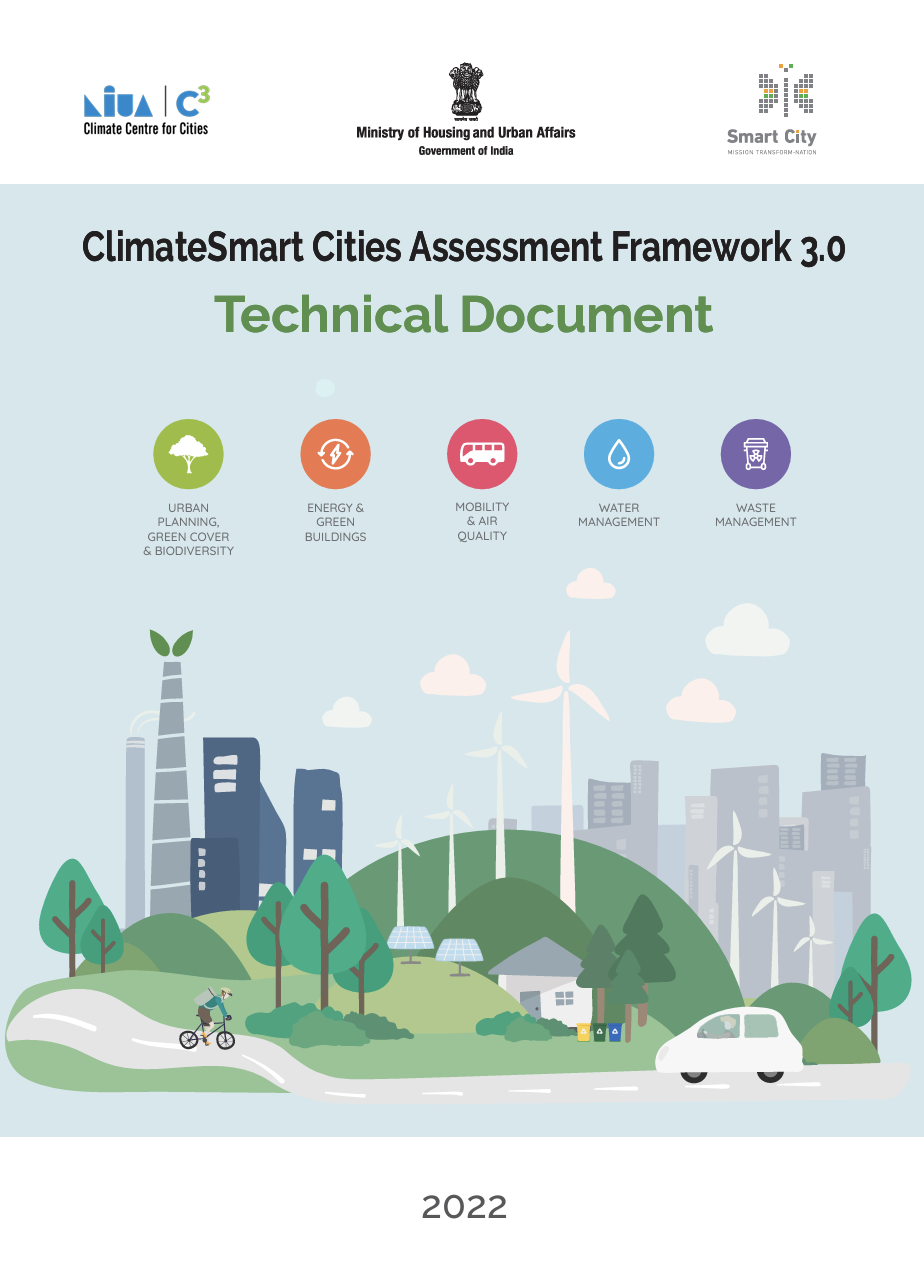CLIMATESMART CITIES ASSESSMENT FRAMEWORK (CSCAF)
 The ClimateSmart Cities Assessment Framework (CSCAF) is a pioneering self- assessment framework on climate-relevant parameters, aimed at providing a roadmap for Indian cities to mainstream climate actions into their current and future policies, programs, and projects. The CSCAF was introduced by the Ministry of Housing and Urban Affairs (MoHUA) and implemented by the Climate Centre for Cities at the National Institute of Urban Affairs (NIUA) to promote climate-informed and resilient urban development.
The ClimateSmart Cities Assessment Framework (CSCAF) is a pioneering self- assessment framework on climate-relevant parameters, aimed at providing a roadmap for Indian cities to mainstream climate actions into their current and future policies, programs, and projects. The CSCAF was introduced by the Ministry of Housing and Urban Affairs (MoHUA) and implemented by the Climate Centre for Cities at the National Institute of Urban Affairs (NIUA) to promote climate-informed and resilient urban development.
The framework evaluates cities across 28 development indicators under five thematic areas:

Urban Planning, Green Cover, and Biodiversity

Energy and Green Buildings

Mobility and Air Quality

Water Management

Waste Management
These indicators are designed to be both progressive and aspirational, reflecting cities' contributions to national and international initiatives, such as the National Mission on Sustainable Habitat (NMSH), Nationally Determined Contributions (NDCs), Sustainable Development Goals (SDGs), and the Sendai Framework for Disaster Risk Reduction.
In 2021, the NMSH was revised and aligned with the CSCAF, ensuring that its targets for 2021–2030 correspond to the indicators specified in the framework.
The CSCAF aims to generate a robust database that enables time-series analysis and progress tracking, thereby supporting evidence-based policymaking for social and economic development. It seeks to democratize data by making it accessible to all urban stakeholders, including government entities, academic institutions, citizens, and industries. This approach contributes to achieving SDGs, fosters public transparency, enhances citizen-centric governance, and ensures improved data quality for informed decision-making. The framework also encourages cities to enhance and maintain data quality through open databases.
The Phase 3 assessment of the CSCAF, conducted as part of the Urban Outcomes Framework (UOF), expanded its reach from 126 cities in Phase 2 to 226 cities. Participation has steadily grown, with 96 cities in the first round, 126 in the second, and 226 in the third round, demonstrating increasing commitment to climate action among Indian cities. This latest iteration of the CSCAF supports 226 cities in implementing climate actions, positively impacting approximately 287 million people, or 51% of India’s urban population
Click here to read more: https://niua.in/c-cube/content/cscaf
Click here to access the Climate Data Observatory: https://niua.in/c-cube/cdot/city-performance.html


